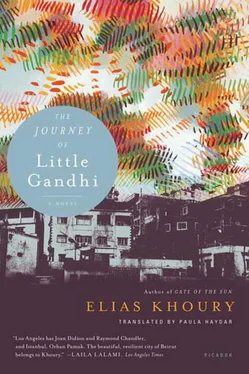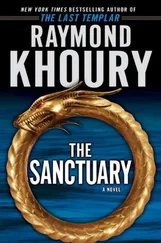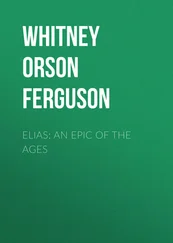Bullets, and silence. A dawn of light rain and boots, the city awakened as if it were asleep.
On Madhat Basha Street, a few meters from Saydani Street, Ahmad Sunbuk was running. On top of a garbage heap he found a wrinkled army uniform. He picked it up, put on the khaki pants over his own blue pants, and the army shirt over his own green one. He took off his brown shoes and put on the black rubber boots. Then he put a cooking pot on his head and went running in the streets.
Ahmad Sunbuk was looking right and left and laughing, baring his broken yellow teeth, and went running in the streets. He bent down, picked up a piece of wood, and put it under his arm like a machine gun. He aimed it at the street in front of him and started shooting. He started running and spraying bullets all around and making machinegun sounds. He jumped over the trash bags and the little puddles that formed in the potholes in the road. He jumped up and fell on the ground, then got up again and continued his battle.
At the entrance to Saydani Street, Ahmad Sunbuk was hit with five bullets. The blood poured from his back, but he kept on running. Alice, who was standing over Little Gandhi’s water-logged corpse, said he continued running as if he hadn’t been hit. He was running, with the blood gushing from his back, and he didn’t look back. His running began to slow down. He walked as he ran, then he fell to the ground as if he were acting. He fell on his knees and his head fell back and out came the cry “Allahu Akbar!”
It was Abu Saeed al-Munla who screamed. He came out onto the balcony and shouted “Allahu Akbar!” His voice was loud and hoarse, as if he were clearing his throat. And the cry “Allahu Akbar!” echoed from the minarets and balconies. Suddenly, the abandoned, demolished city began to shout from its minarets in a unified voice. The Israeli soldiers who occupied the streets, and who shot at anything and everything, aimed their rifles at Abu Saeed’s balcony and fired. Abu Saeed was hit, the blood gushed from his chest like a fountain. He fell onto the floor of the balcony with a thud, and “Allahu Akbar!” sounded from all the minarets. The soldiers heard, fired, and then their rifles became silent. All of a sudden they began to retreat as if they were frightened. They bent down beneath the balconies, leaning their tired bodies against the walls, and kneeled with their knees to their chests on the ground. And Ahmad Sunbuk remained in his place, kneeling, his head thrown back as if he were praying.
Alice wept and wailed. She wasn’t sure if she was crying over Gandhi or Sunbuk or Abu Saeed, or because she heard the calls of “Allahu Akbar!”
I asked her about Sunbuk. She smiled and wiped her eyes with a Kleenex, as though she wanted to show me she was about to cry. She said everyone knew Sunbuk, and no one knew who he was or where he came from. He was the local idiot. He’d stand in the middle of Hamra Street with a piece of gray cloth in his hand, using it to polish the windows of cars stopped in traffic. The people in the cars would get impatient with him, because when he’d wipe the glass he’d get it all dirty instead of cleaning it, leaving behind little black smudges. The drivers would pay him and accept his dirty piece of cloth to avoid upsetting him. Sunbuk wouldn’t allow anyone to make fun of him. One time a man got out of his car, paid him, and asked him not to clean the windshield. The only thing Sunbuk could do was break the windshield of the car with one swift blow of his fist. Sunbuk changed after that incident. It was no longer enough for him to wipe windshields; now he’d stand up and whistle, direct traffic, and give orders.
Nobody knew anything about him other than that he came from a small village in the Beqaa. He never told anyone the name of the village, and he was all alone. He lived in a wooden shanty next to Ramal al-Zarif High School. He’d drink Pepsi out in front of his shack and sing in a soft voice.
What happened to Ahmad Sunbuk the morning of September 15, 1982? Was he a part of the river of blood the city was to drown in? Or was he its hidden cry amidst the fear that flattened the city’s joints during three months of bombings and blockades?
Abu Saeed al-Munla said in the hospital while listening to the news of the massacres of Sabra and Shatila, and of the collective fear that overtook Beirut, he said something hidden inside him had made him scream. He didn’t know why the call to prayer rose out of him, for it wasn’t time for prayer.
On that morning, people said, the voices of the muezzins were different. In Beirut, as is the case in all the cities of this region, the muezzins no longer climbed up the minarets to sound the call to prayer. They replaced this with recordings connected to loudspeakers. As for that morning, things were different; they weren’t recordings, they were the real voices of the muezzins, piercing the city sky. They were like wounds rising up in the middle of a silence that made it seem like gunfire, and faces like masks peered out from the windows. There was nothing left but the quick steps of the soldiers and the sound of their random firing, and the black fear drawn on the lines in their faces. The moans of the wounded dying in the streets of the abandoned city trailed off, with no one to hear their final cries for help.
This is how endings are. A rattling in the throat, voices calling out to come to prayer, and faint moaning covering the streets of an abandoned city.
Gandhi’s mother didn’t tell him she didn’t hear his very first cries, because they came with the dawn prayers. The voice of Sheikh Khalil, the muezzin of Mashta Hasan, was echoing between the walls of the black clay houses. That’s how Little Gandhi was born, after six sisters and prayers and solemn vows taken by his mother, Nafisa, the daughter of Haj Mahmoud al-Khayyat. Her prayers didn’t do any good. Husn bin Abd al-Karim, Gandhi’s father, married three other women under the pretense that his wife was infertile. The last of them was that Gypsy with the long black hair that led Gandhi to the cave of escape.
Nafisa had been married to Husn for seven years and hadn’t gotten pregnant. After the first year he married a second wife, and two years after that a third. The night of Little Gandhi’s birth he was contracting marriage with the Gypsy woman. But his wives gave him only girls. The day of the birth of his sole heir he was sleeping in a hut in a remote village with his Gypsy and no one dared to tell him. When he found out the next day and came to Nafisa, his eyes sparkling with happiness, he found she was unable to talk. She was flushed with fever from her head to her toes, delirious words dribbled out from her lower jaw. Her head was wrapped in a white cloth and Husn’s wives were standing all around her. Husn took his son into his arms and said “Abd al-Karim, Abd al-Karim has come” and prayed over his head. Then he leaned over Nafisa and said something to her the other women didn’t hear. He asked the midwife to rub kohl on the baby’s eyes, then he returned him to his mother. Forty days later the mother died. People said that the Gypsy woman had cast a spell on her. The mother died and Abd al-Karim nursed from his father’s second wife and lived among women and girls in a little village, in an ordinary family with nothing special about it except the image of this father who traveled a lot and beat up his wives.
Abd al-Karim didn’t remember how he lost his left eye. He got used to living with only one eye, to seeing everything, without ever feeling that his left eye was blind. His aunt said his eye bled when he was forty days old. The mother died, and blood gushed from the baby’s eye. His aunt took him to Sheikh Ibrahim, the village doctor who squeezed an herbal mixture into his eye, but it never got better. It became inflamed and covered with black spots. She took him to a bedouin who was known for treating incurable cases. He said the eye should be cauterized and so he heated a nail, cauterized it, and blinded it.
Читать дальше












